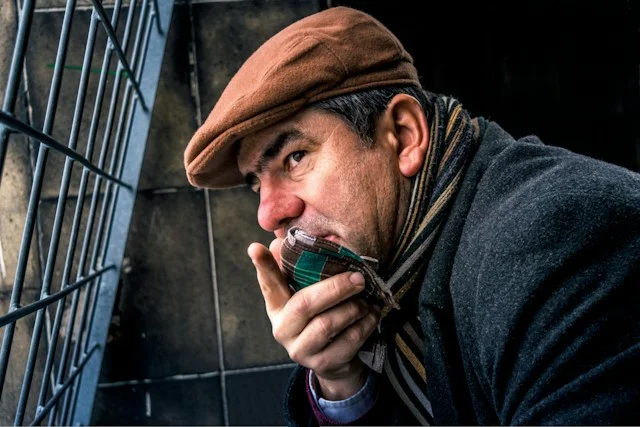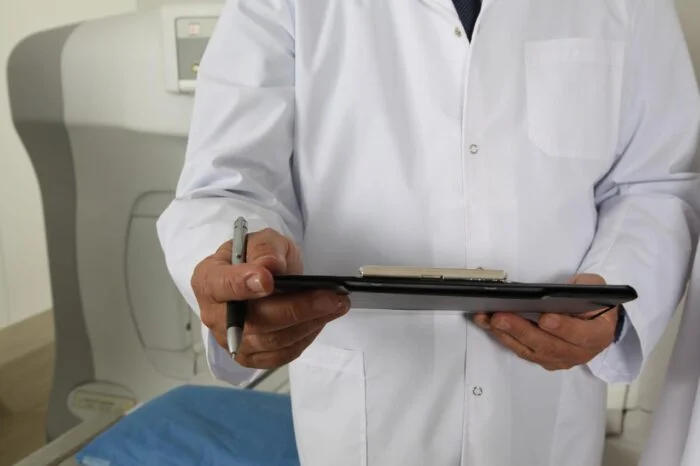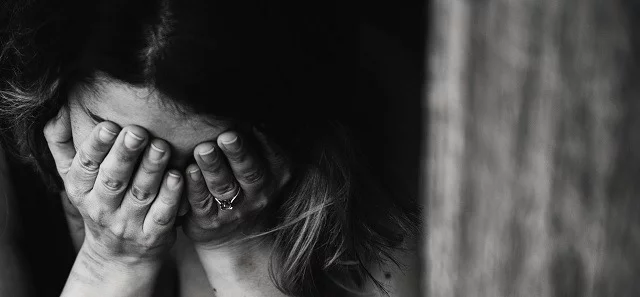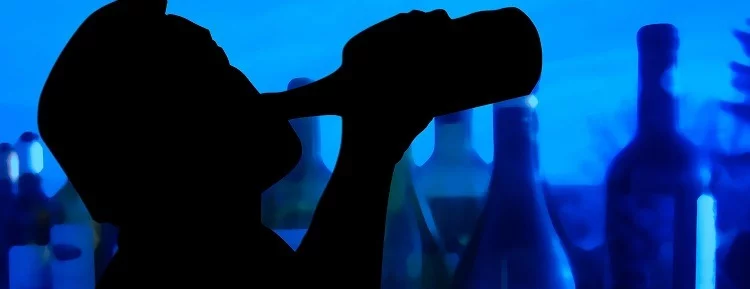Alcoholic Nose: Why Is My Nose Red?
Having a permanently red nose can make you feel self-conscious, particularly when it is so often associated with alcohol addiction.
You may be wondering if your alcohol consumption is related to the redness on your nose. Is ‘alcoholic nose’ a medical term, or simply an umbrella diagnosis for other skin conditions that are unrelated to alcohol?
Continue reading to learn more about alcoholic nose and why having a red nose does not necessarily mean that someone has an addiction to alcohol.
Do you think you’ve started to develop alcoholic nose? Get the help you need by calling us on 0800 088 66 86
What is alcoholic nose and why is my nose red?

‘Alcoholic nose’ is a skin condition that causes a red, bulbous and lumpy nose. Many people associate this condition with alcohol addiction and heavy drinking, hence the name, when in fact the two have very little in common.
There are many reasons that your nose may be red, and alcohol probably isn’t one of them.
It’s true that alcohol can aggravate certain skin conditions and cause them to worsen, but it isn’t thought to cause them.
The two most common skin conditions associated with alcoholic nose are rosacea and rhinophyma, which are both explained in more detail below.
Studies have found little connection [1] between alcoholic nose and alcohol.
The skin conditions that can lead to the appearance of alcoholic nose may be aggravated by alcohol in some cases, but having a red nose does not necessarily mean that someone has an alcohol addiction.
To learn more about alcoholic nose and the impact it can have on your life, call our experts on 0800 088 66 86
What are some other names for alcoholic nose?

Alcoholic nose is also known by several other names, many of which are unflattering and not typically used.
An American actor with a reputation for heavy drinking named W.C. Fields coined the term ‘gin blossoms’ when referring to the bumps on his nose, and the name stuck.
Other names for alcoholic nose include:
- Drinker’s nose
- Whisky nose
- Cauliflower nose
- Gin nose
- Potato nose
- Rum nose
- Gin blossom
- Bulbous nose
Many of the above names reference the size and shape of an alcoholic nose, however it should be noted that other conditions can cause this appearance that are not related to alcohol.
Get the help you need to beat addiction by giving us a call on 0800 088 66 86
What are the signs of alcoholic nose and what does it look like?

Many of us will know the stereotypical portrayal of someone with an alcohol addiction – they are often shown as clumsy and confused with a red nose which is often bulbous and lumpy.
In reality, alcohol does not cause any changes to the nose.
It can aggravate the symptoms of rhinophyma and rosacea which can cause the appearance of an alcoholic nose, but it is not thought to cause it.
Signs of rhinophyma and rosacea which are commonly attributed to alcoholic nose include:
- Redness and irritation of the skin on the nose
- An enlarged nose that grows gradually over time
- A bulbous look to the nose
- Small, pus-filled bumps covering the nose
- A purple or red hue
- A misshapen nose tip, sometimes blocking the nostrils
If you do drink heavily and have noticed that your nose is displaying some of the above symptoms, cutting down on alcohol may help to lessen the redness if you have a form of rosacea that is aggravated by alcohol.
However, in most cases reducing alcohol intake will not help with rhinophyma as this condition is not thought to be associated with alcohol use.
Started to spot the signs of alcoholic nose? Get the support you need by calling us on 0800 088 66 86
What causes alcoholic nose?

Films and TV shows commonly show those with an alcohol addiction to have a large red nose.
As a result, many people associate this condition with heavy alcohol use.
There is no such thing as an ‘alcoholic nose.’
This is a stereotype that can be harmful to those who are suffering from a skin condition.
As stated, the two most common causes of a red, enlarged and bulbous nose are listed below:
- Rosacea
- Rhinophyma
Throughout this article, we will be discussing the symptoms and causes of both of these skin conditions and how they have come to be commonly associated with alcohol addiction.
What is rosacea?
Rosacea [2] commonly occurs on the nose and cheeks. It is a skin condition that presents as a red rash and can cause a bumpy, inflamed skin texture.
There is no concrete evidence showing exactly what causes rosacea.
It is thought that diet may contribute, particularly alcohol and spicy foods. The connection to alcohol is why rosacea of the nose is commonly attributed to alcoholic nose.
One study published in the Journal of the American Academy of Dermatology [3] has shown that women who drink alcohol are more likely to develop rosacea than women who are teetotal.
Even if your rosacea is not specifically caused by alcohol, drinking can worsen the symptoms and cause a flare-up.
What are the symptoms of rosacea?
As mentioned above, rosacea sufferers usually experience flare-ups of the condition punctuated by periods of remission, where they do not have any symptoms for some time.
Some of the most common symptoms of rosacea include:
- Redness – this is most commonly found on the nose and cheeks but rosacea can also affect the scalp, chest, ears and under the eyes
- A tingling or burning feeling in the affected area
- Small bumps filled with pus
- Itchiness
- Skin sensitivity
- Visible blood vessels
- Thicker skin in the affected area, which can cause the nose to become larger and bulbous
Most people do not experience every symptom of rosacea – in fact, it is more common to only experience two or three.

What is rhinophyma?
Rhinophyma is a skin condition that affects the nose. It can cause it to enlarge and become bulbous, and also turns the nose purple or red.
Many dermatologists believe that rhinophyma is a severe side effect of untreated rosacea.
While this condition is often associated with heavy alcohol use, there are no studies that support this theory. [4]
Rhinophyma can affect anyone, even those who do not drink alcohol at all.
If this skin condition is left untreated, it can severely affect the appearance of the nose. It may become lumpy and misshapen, and the tip of the nose can become so enlarged that it obstructs the nostrils.
What are the symptoms of rhinophyma?
Like rosacea, rhinophyma typically occurs in cycles and flare-ups.
The nose may appear to get better for a while before the symptoms reappear and worsen.
This can be an extremely uncomfortable condition that can have a noticeable impact on your self-esteem.
Some of the most common symptoms of rhinophyma include:
- Severe rosacea that will not go away
- The nose gradually becomes enlarged and lumpy over time
- Thick, bumpy skin on and around the nose
- A large number of visible oil glands
- Enlarged pores on the skin of the nose
- Red or purple skin tone on the nose
Rhinophyma is usually diagnosed through a physical examination. You will likely not be asked about your alcohol intake.
To learn more about the various causes of alcoholic nose, give our team a call today on 0800 088 66 86
Is rhinophyma the same thing as alcoholic nose?

When most people think of alcoholic nose, they are likely thinking of rhinophyma.
While rhinophyma is commonly associated with heavy alcohol use, the two are not linked. This condition is not thought to be caused by alcohol, although it can be aggravated by alcohol use.
In fact, it is not known what causes rhinophyma. Some experts believe it to be a severe symptom of rosacea, while other studies have found a link to sudden emotional responses such as stress.
It is not helpful to associate rhinophyma with alcohol addiction, as sufferers may be unfairly judged and avoid seeking medical treatment due to perceived stigma.
The reason a red nose is so commonly associated with alcohol addiction is that alcohol is a trigger for both rosacea and rhinophyma.
It is not causing these conditions, it can simply aggravate them and it’s important to remember that they can be present even if the affected person does not drink alcohol at all.
Find out everything you need to know about rhinophyma and how to treat it by giving us a call on 0800 088 66 86
Who is most at risk for alcoholic nose?

Alcoholic nose is not a medically recognised condition, but there are risk factors for both rhinophyma and rosacea that it can be helpful to be aware of.
Men are more likely to develop rhinophyma than women, although it has been diagnosed in women.
This condition typically affects older men aged between 50 and 70 with fair complexions, particularly those of Celtic heritage.
If you have a family history of skin conditions, then you have a greater chance of developing rhinophyma.
Rosacea, on the other hand, affects more women than men. However, if a man develops rosacea then he will usually have more severe symptoms than a woman.
Like rhinophyma, rosacea is more common in those with pale complexions and a family history of skin conditions.
People who drink heavily are more likely to aggravate and worsen the symptoms of both rhinophyma and rosacea, although alcohol is not known to specifically cause these conditions.
Don’t let alcoholic nose ruin your life – get the help you need today by calling us on 0800 088 66 86
How can I get rid of alcoholic nose?

No matter the cause, a red nose can impact your self-esteem and can make you want to hide from the world. The good news is, there are treatments available.
The first thing you should do is seek a professional diagnosis from a reputable doctor. This will help you to pinpoint the cause and receive advice on how to treat your specific condition.
If your red nose is caused by alcohol, your doctor will likely recommend that you cut down on your alcohol intake or even stop drinking altogether through a medical detox.
Rosacea can be treated through prescribed topical ointments or medication, and over time it should diminish if you avoid triggers such as alcohol and spicy foods.
The most effective way to treat rhinophyma is through surgery to remove the growths and reshape the nose back to its original form. Some medications may help a little with the redness, but once this condition is present most people will require some form of surgery.
Of course, you do not have to treat rhinophyma or rosacea. These conditions are not life-threatening and it is possible to live with them.
But if your red nose is affecting your self-esteem, causing you discomfort or resulting in judgement from others, then surgery is a viable option.
Get the help you need to treat alcoholic nose by giving us a call on 0800 088 66 86
Will my red nose go away if I stop drinking alcohol?

In many cases, alcoholic nose will improve or even go away completely if you stop drinking alcohol.
However, this is not a temporary fix. If you stop drinking alcohol for a short period of time and then go back to it, it is highly likely that your red nose will return.
It’s very important to seek professional help if you decide to stop drinking, particularly if you drink large amounts of alcohol on a regular basis.
Alcohol withdrawal symptoms can be dangerous, so it is recommended that you only quit drinking under medical supervision.
It’s helpful to focus on staying hydrated and flushing all the alcohol from your system, as well as resting as much as possible. This will increase the chances of your red nose going away.
If your nose is still red even when you no longer drink alcohol, you may wish to seek medical advice. In some cases, only medication and/or surgery can fix alcoholic nose.
Beat alcohol addiction with the support of a drug and alcohol rehab by calling our expert team on 0800 088 66 86
Battling the stigma of alcoholic nose and addiction

While an alcohol addiction can often be hidden from strangers for some time, having an alcoholic nose can feel like a neon sign proclaiming to the world that you have an addiction to alcohol.
Unfortunately, there is still a stigma surrounding alcohol addiction. Some people judge those with an alcohol use disorder and believe them to be unreliable, unstable and lacking willpower.
They don’t see addiction as a disease – instead, they see it as a personal choice. This couldn’t be further from the truth.
Alternatively, some people may be labelled as heavy drinkers due to the appearance of their nose even if they drink moderately or not at all.
Alcohol is not the only cause of a red or enlarged nose – rosacea and rhinophyma can both develop without the use of alcohol. This can lead to people being judged or excluded simply because they may stereotypically look like someone with an alcohol addiction.
Don’t allow stigma to dominate your life – give our team a call on 0800 088 66 86
What are the signs of an alcohol addiction?

If you have noticed the signs of alcoholic nose, you may be wondering whether you have a problem with alcohol.
Even a glass or two of wine after work each day can spiral out of control without you realising, and you may be drinking much more than you think.
Physical signs of an alcohol addiction include:
- Struggling to function without drinking alcohol regularly
- Experiencing withdrawal symptoms when you are not drinking
- Noticeable weight gain or weight loss
- Appearing unkempt and poorly groomed
- Frequently being intoxicated and/or hungover
- Often feeling tired and lethargic
- Experiencing insomnia and nightmares
- Developing a tolerance to alcohol and needing to drink more than you used to
Psychological signs of an alcohol addiction include:
- Frequent mood swings, quickly switching from happy to sad and everything in between
- Craving alcohol when you are not drinking it
- Increased feelings of anxiety and/or depression
- Worsening of any present mental health disorders such as bipolar disorder or psychosis
Behavioural signs of an alcohol addiction include:
- Failing to meet responsibilities at work or school
- Becoming withdrawn and distant from others
- Spending less time with family and friends in favour of drinking alcohol
- Drinking at inappropriate or dangerous times, such as at work or before driving
- Trying to stop drinking alcohol but being unable to
If you notice any of the above signs in yourself, you should seek medical advice and support as soon as possible.
Started to spot the signs of alcohol addiction? Get the support you need by giving us a call on 0800 088 66 86
What else does alcohol do to my face?

Alcoholic nose is just one of the many impacts that alcohol can have on your face and overall appearance.
Alcohol is a diuretic, which means it has a dehydrating effect on your body – including your skin.
When you drink, you lose water in your skin which can cause your face to appear more wrinkled and lined. You may also look grey and dull, losing the vibrance and vitality that you once enjoyed.
A bloated and puffy face is another common side effect of drinking alcohol, and many people find that they lose confidence in their skin tone and texture after drinking heavily on a regular basis.
Excess alcohol consumption can also cause psoriasis, a condition that results in flaky and itchy skin. If you are prone to other skin conditions such as eczema, alcohol can worsen them.
Finally, you may experience dry and bloodshot eyes as the dehydrating effect of alcohol reduces the amount of tears that you produce.
Don’t try to tackle addiction all by yourself – give our team a call today on 0800 088 66 86
References
[1] https://www.ncbi.nlm.nih.gov/pmc/articles/PMC4426765/
[2] https://www.nhs.uk/conditions/rosacea/
[3] https://www.aad.org/public/diseases/rosacea/insider/drinking




